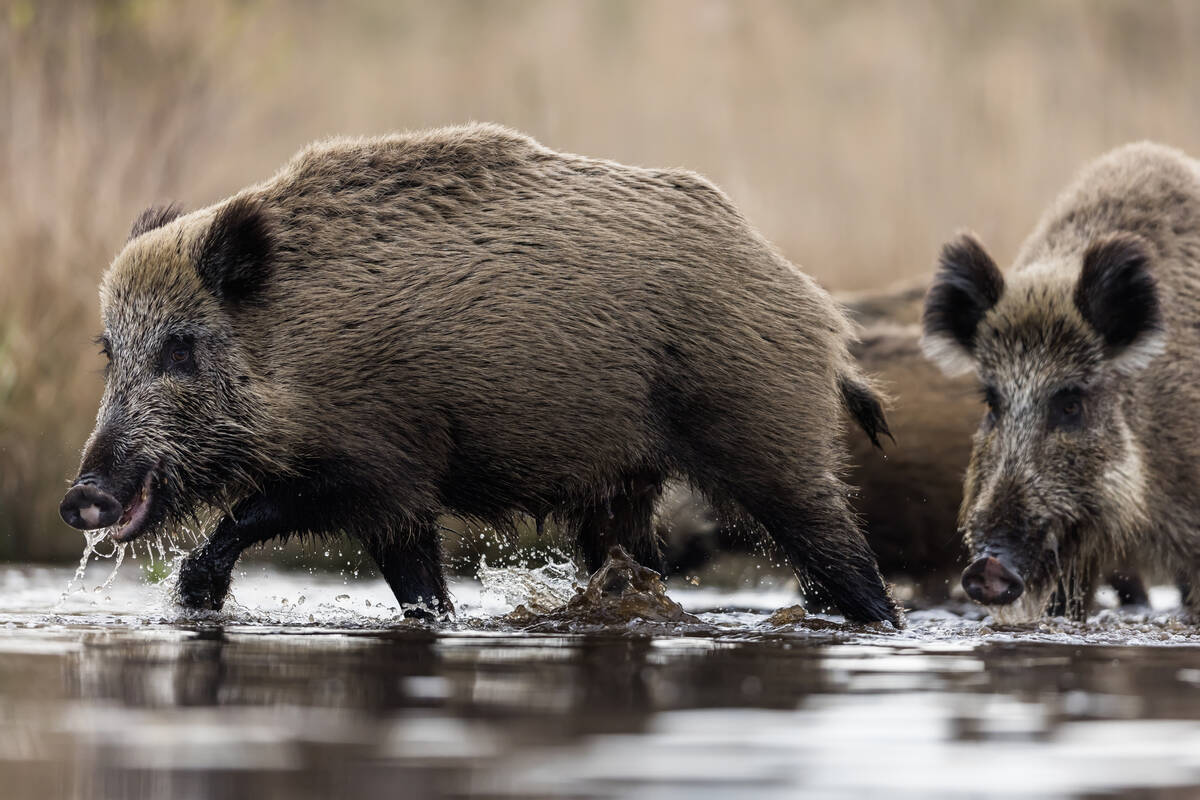Saskatchewan’s farm fuel tax exemption could be on the chopping block as the government undertakes what it calls transformational change.
Finance Minister Kevin Doherty said during the June 1 budget that everything will be on the table as the government examines all the programs and services it provides, including big-ticket spending on health and education.
Last week, provincial auditor Judy Ferguson released a report that said the farm fuel tax exemption has existed in its current form for nearly 30 years but the government doesn’t know if it is working.
Read Also

Manitoba bans wild boar possession
Manitoba has tightened the regulatory status of Eurasian wild boar in an effort to help fight back against invasive wild pigs.
“They didn’t ask the tough question: have we defined why we need this program?” she told reporters.
Programs have existed for decades in several provinces to exempt farmers, as well as commercial loggers, fishers and trappers, from paying fuel tax.
University of Saskatchewan agricultural economist Richard Gray said the idea was that tractors and combines, for example, don’t regularly use roads and most of their fuel consumption is on fields. Fuel taxes were originally meant to be used for roads.
The program has changed over the years but currently exempts permitted primary producers from paying the full 15 cents per litre provincial tax on gasoline bought in bulk. Instead, farmers pay three cents, or 20 percent.
Marked diesel and propane are entirely exempt for use in primary production.
Eligible permit holders are farmers who own or rent at least 75 acres to grow crops or who earned gross yearly revenue of at least $10,000 from farm products.
The program will cost an estimated $120.1 million this year.
There is also a home heating fuel exemption that is designed to create parity with natural gas. It is worth about $28.7 million.
Ferguson said the government clearly knows why the latter exemption exists and needs the same information on farm fuel.
Overall, tax exemptions cost the treasury $3.9 billion each year.
“I understand where the auditor is coming from, and as I indicated during the budget deliberations and on budget day … we’re looking at everything on the expenditure side,” Doherty said.
“We’re looking at everything on the revenue side.”
Other exemptions specifically for farmers include provincial sales tax on some farm machinery and repair parts, which will cost the treasury about $83.8 million this year, and the PST exemption on fertilizer, pesticide and seed purchases valued at $163.4 million.
Gray said the PST exemptions are more legitimate than the fuel tax because farmers are running businesses.
“Where the gasoline is being used is people driving around in bigger and bigger trucks,” he said, noting most machinery is diesel.
As well, he said the requirements to obtain the exemption are minimal.
“They’re consistent with getting rural votes more than anything,” he said.
Norm Hall, president of the Agricultural Producers Association of Saskatchewan, said changing the requirements could leave out new entrants in industries such as fruit and vegetable production or greenhouse growers.
He said the program could be tweaked rather than eliminated.
“Let’s make it the program it’s designed to be,” he said. “Let’s make sure it’s running right.”
Hall couldn’t say why the number of litres exempted is climbing, and costing the province more, except that anecdotal evidence suggests fuel use compared to horsepower is high.















